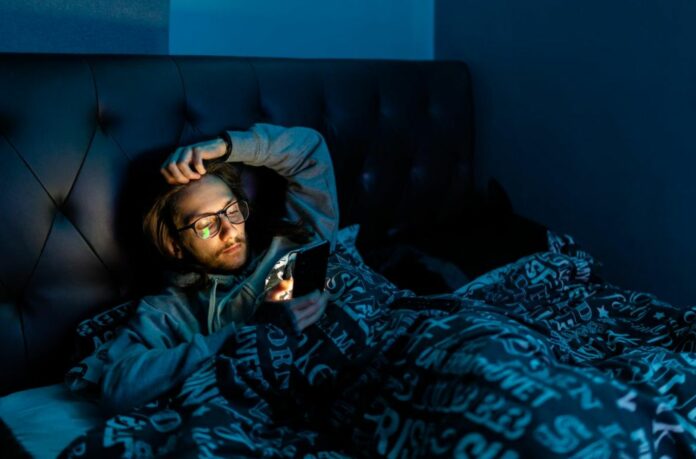Insomnia? Can’t Sleep? New Study Reveals an Irritating Habit that Robs Us of Hours of Sleep
Insomnia’s exact prevalence remains somewhat elusive, with current estimates proposing that it affects between 10% to 60% of the population. What is clear, though, is its association with a multitude of long-term health conditions such as depression and cardiovascular disease.
A recent research study has revealed an intriguing twist to this tale – it appears that the common habit of time-monitoring behavior (TMB), or keeping a keen eye on the clock, may exacerbate insomnia, heighten frustration, and result in an increased reliance on sleep medications.
According to the researchers, TMB creates a self-perpetuating cycle. As insomnia and its accompanying disturbances intensify, individuals tend to observe the clock more closely, thereby worsening the condition.
“People are concerned that they’re not getting enough sleep, then they start estimating how long it will take them to fall back asleep and when they have to be up,” explains Spencer Dawson, a clinical psychologist at Indiana University Bloomington. Dawson emphasizes, “That is not the sort of activity that’s helpful in facilitating the ability to fall asleep; the more stressed out you are, the harder time you’re going to have falling asleep.”
Dawson’s team examined data relating to sleep from 4,886 patients who had filled out a questionnaire at a sleep medical center in Arizona. This included details about the severity of their insomnia, the time spent monitoring their behavior during attempts to sleep, and their usage of both prescription and over-the-counter sleep medications.
The researchers employed mediation analyses to statistically evaluate the relationship between these variables. In this context, insomnia is the causative factor, sleep medication usage is the outcome, and TMB is the proposed ‘intermediary’ among these three variables.
Their analysis revealed a significant correlation between all three variables. Patients suffering from both insomnia and related psychiatric conditions reported more frequent clock-watching and a higher use of sleep aids.
Moreover, participants’ feedback about their frustration due to TMB and the act of TMB itself enabled the researchers to link this frustration to the increased use of sleep medications. This provides significant support for the idea that clock-watching intensifies the use of sleep aids, predominantly due to the resultant frustration worsening insomnia.
The findings suggest “time monitoring behavior mainly has an effect on sleep medication use because it exacerbates insomnia symptoms,” points out Dawson.
Nevertheless, TMB wasn’t the sole catalyst for medication use. The researchers highlighted that frustration due to sleeplessness plays an equally important role in managing insomnia.
To mitigate this frustration and consequently reduce the reliance on sleep medications, the researchers suggest employing specific therapies such as cognitive restructuring or addressing emotional processing.
This research was part of a broader investigation into the frequent use of sleep medications, which have raised concerns about their long-term efficacy and health risks. Consequently, reducing their usage is seen as beneficial. If simple interventions such as refraining from checking the clock while trying to sleep can help, they are worth exploring.
In addition to proposing future investigations into TMB with larger cohorts over longer periods, the researchers suggest practical steps to resist the urge to check the time.
“One thing that people could do would be to turn around or cover up their clock, ditch the smart watch, get the phone away so they’re simply not checking the time,” suggests Dawson, adding, “There’s not any place where watching the clock is particularly helpful.”
The results of this research have been published in the Primary Care Companion for CNS Disorders.
Image Credit: Shutterstock
